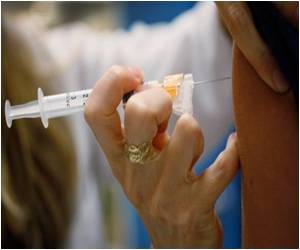Researchers say more than two-thirds of healthy US adults are infected with the human papillomavirus (HPV), which can lead to genital warts and in some cases, cancer.

A full 69 percent had HPV, said the study led by researchers at New York University Langone Medical Center.
Most of the strains of HPV that were detected, 109 in all, were not the type that are linked to cancers of the cervix, anus, penis, mouth and throat, said the findings presented at a meeting of the American Society of Microbiology in Boston.
Just four of the people sampled -- men and women between the ages of 18 and 80 -- carried strains of HPV type 16 and 18, which can trigger cancer.
Experts say HPV is the most common sexually transmitted infection in the United States, and that most people contract it in some form during their lifetimes.
Often the body clears the infection on its own, though some strains can linger and lead to cancer.
Researchers did not break down the infections by age group.
After that, it was most common in the vagina (42 percent), mouth (30 percent) and gut (17 percent).
Pei said the findings also show that current tests for HPV only look for about a dozen strains and so are likely missing many of those actually exist.
Broader methods of detecting HPV and better diagnostic tests are needed, the researchers said.
Source-AFP
 MEDINDIA
MEDINDIA




 Email
Email




